#DetroitThree
Detroit Three Strike Target ID'd Tuesday; Unifor Looks to Bring Public Cash Onside
With its members having recently voted to strike if bargaining teams don’t make headway, Canadian autoworkers union Unifor plans to reveal its first target next Tuesday. Contract talks kicked off last month, with Unifor aiming to maintain, at the very least, the current complement of Detroit Three workers north of the border.
With the auto industry in continued retreat in Canada, Unifor knows that the next four years could be the term in which one of the Detroit Three ceases to manufacture vehicles on Canuck soil. What’s left in the country is starting to look threadbare and futureless. Maybe some public cash will sweeten the landscape?
Strike Action Now in the Toolbox As Detroit Three Bargaining Continues in Canada
Unifor, the union representing autoworkers in the Greater South Detroit Area (GSDA, also known as Canada), has voted to add a walkout to its list of bargaining tools. The union’s membership, unsurprisingly, voted to allow their bargaining committees to threaten or initiate a strike if Ford, General Motors, and Fiat Chrysler don’t pony up at the table.
There’s a good possibility Unifor members might get a chance to exercise this time-honored tactic of organized labor, if last fall’s GM walkout in the U.S. is any indication. And we all know that Canada, which has already lost plenty of auto manufacturing in past decades, has a lot more to lose.
With Plants at Stake, Unifor Prepares to Plunge Into Detroit Three Negotiations
Canadian auto manufacturing has steadily declined over the past several decades, and the future looks cloudy for workers at Detroit Three plants. It’s under this gathering gloom that the union representing these workers, Unifor, enters into contract negotiations with General Motors, Ford, and Fiat Chrysler.
The last round of collective bargaining was rough, but the near-closure of GM’s Oshawa Assembly (where auto production ceased last year) provided Unifor with a grim portent of what could await other underutilized Canuck plants.
Read My Lips: Michigan's Governor Issues a Warning
Auto plants across the U.S. are a beehive of activity as workers (and their bosses) seek to make up for lost time. The two-month coronavirus shutdown drained inventories, yet the virus that sparked the unprecedented closure of workplaces across the nation hasn’t gone away.
As you read yesterday, the ongoing pressures reportedly forced one Detroit-based automaker to take desperate measures just to keep the taps running. So Detroit Three automakers probably reacted with trepidation after hearing the U.S.’s most car-heavy state isn’t afraid to pump the brakes once again.
A Break From the Fam: As the Detroit Three White-collar Crowd Cools Its Heels At Home, Fiat Chrysler Has a Plan
You read yesterday how Ford Motor Company plans to keep its salaried workforce working from homes presumably overflowing with baking flour and yeast until September — a measure designed to combat spread of the novel coronavirus.
Ford’s Detroit rivals have shown themselves to be pretty much on the same page in terms of pandemic response, though one player has always seemed a little more eager to return to a normal existence than the others.
Report: U.S. Ramp-up of GM Pickups Paused As Parts Prove Precious
While General Motors earned the right to resume production in Mexico on Thursday, parts procurement in the gradually reopening North American economy remains a serious roadblock.
U.S. plants came online May 18th following two months of pandemic-prompted downtime. Of topmost importance to all members of the Detroit Three are their hot-selling pickup lines, though UAW- and state-approved health protocol calls for a slow ramp-up, with all plants operating on reduced shifts. Parts supply will dictate those ramp-ups; in GM’s case, boosted pickup production in the Midwest will have to wait.
Pickups: You Want 'em, You're Buying 'em, but America Now Needs to Build 'em
The Detroit Three has something of a problem. Sales of their cash-cow, bread-and-butter full-size pickups hardly waned during the extended pandemic lockdown, and are, as of a week ago, selling just as they had before anyone heard of the coronavirus. And yet the plants tasked with building them still aren’t online.
Automakers that just months ago were concerned with higher-than-average inventory levels now have the opposite problem.
Report: May 18th Could Be It for Detroit Three
Unlike their foreign rivals, Ford, General Motors, and, belatedly, Fiat Chrysler held off on nailing down a specific date for a production restart. The latter company was expected to begin ramping up production starting May 4th, but last week’s announcement by UAW President Rory Gamble made it the odd man out. The plan’s now off the table.
According to one report, the three automakers will present a united front, with each operation coming back online on the same day.
Back to Work in Early May? Not So Fast, Says UAW
The domestic auto industry is revving its engines, ready to cautiously punch the accelerator, but something’s standing in its way. That something would be United Auto Workers President Rory Gamble, who on Thursday appealed to companies to put the green flag away and think of their employees instead.
Seeing automakers angling for a production restart in the first week of May, the UAW boss said it was too early to move ahead.
“At this point in time, the UAW does not believe the scientific data is conclusive that it is safe to have our members back in the workplace,” Gamble said in a statement. “We have not done enough testing to really understand the threat our members face.”
Detroit Three, Tesla Leverage Suppliers, Know-how to Bolster Health Production
Much talk has been made over the past week of turning the auto industry’s manufacturing might into a so-called Arsenal of Health. In the U.S. and Canada, federal governments have turned to automakers for production of much-needed ventilators to save lives of coronavirus patients. Meanwhile, breweries and distilleries have swapped to hand sanitizer production.
Turning on a dime to crank out ventilators and face masks isn’t an overnight proposition, but an emergency effort to expand the availability of life-saving supplies would go a long way to save lives. The Detroit Three are already on it. Tesla, too.
Detroit Three Update: GM, Ford to Cease Production, FCA's Actions Unclear
Ford Motor Company says it plans to idle all North American plants by end of day Thursday, keeping those facilities offline until the end of the month in an effort to cleanse them of coronavirus. General Motors is following suit, though Fiat Chrysler has yet to detail its near-future plan to protect workers and tailor production to reduced consumer demand.
The details come after the Detroit Three automakers agreed to a partial shutdown of U.S. production after advocacy from the United Auto Workers.
Detroit Three: Remote Work Goes Into Effect in U.S., Unless You're Working the Line
The domestic auto industry is quickly shifting into self-isolation mode as best it can, knowing full well that assembly plants can’t churn out shiny new automobiles with line workers sitting in their living rooms.
As North America moves into a new phase of the emerging pandemic, automakers are taking precautionary measures, all the while wondering how long the lights will stay on.
At Least for Cars, Preliminary U.S.-Japan Trade Deal Keeps the Status Quo
There’s good news if you’re a U.S. farmer, however. A preliminary deal reached between the two countries this week would keep existing auto tariffs in place, though President Donald Trump claims there’s still the possibility of a hike.
It was the threat of import tariffs that brought Japan to the table following the U.S.’s 2017 pullout of the Trans-Pacific Partnership, and the agreement in principle announced this week keeps new tariffs off the table, though auto groups continue demanding action on an issue Lee Iacocca used to rail about: reciprocity.
Detroit Three January 2018 Auto Sales: Trucks Can't Carry It All
After the industry’s first annual sales decline of the post-recession era in 2017, the small uptick in year-over-year U.S. auto sales in January 2018 shouldn’t be seen as a trend, analysts warn. This year will apparently bring more worry for automakers as buyers plan fewer trips to the dealership.
For the domestic brands, January brought a mixed sales bag. Two members of the Detroit Three posted significant sales declines, while the third squeaking by on the strength of light truck sales. Clearly, having a lineup full of pickups, SUVs, and crossovers helps a company’s bottom line, but it’s no guarantee of ever-higher volume in today’s market.
Non-Detroit Three Automakers Already Sell More Cars in North America, and Soon They'll Make More
Detroit’s dominance in the domestic automotive sphere continues to erode. Whereas the manufacturing hub, home to Ford, General Motors, and Fiat Chrysler Automobiles, once churned out the bulk of vehicles built — and sold — in the United States, times have changed.
The former Big Three automakers no longer hold the majority market share in the U.S. (in 2016 it was 44.9 percent), necessitating a name demotion to “Detroit Three.” From Silicon Valley to the Midwest and South, a diverse group of automakers is busily assembling cars and SUVs for a population with very wide-ranging tastes. We’ve long since become used to the idea that many Hyundais now hail from Alabama, several Subarus come from Indiana, Honda models grow in Ohio, and BMWs arrive from South Carolina with a Southern drawl.
Now, one industry watcher claims the Detroit Three won’t even finish the year as the majority builder of North American-made vehicles.



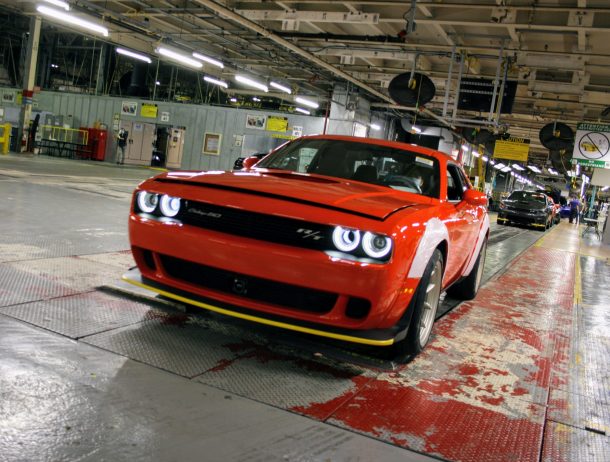


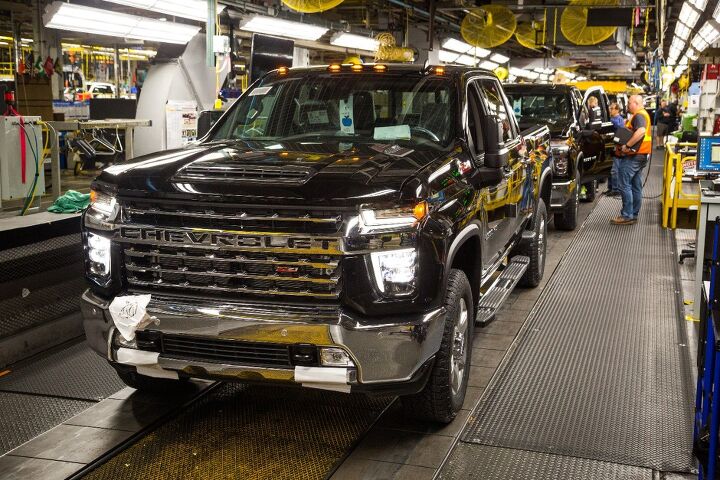

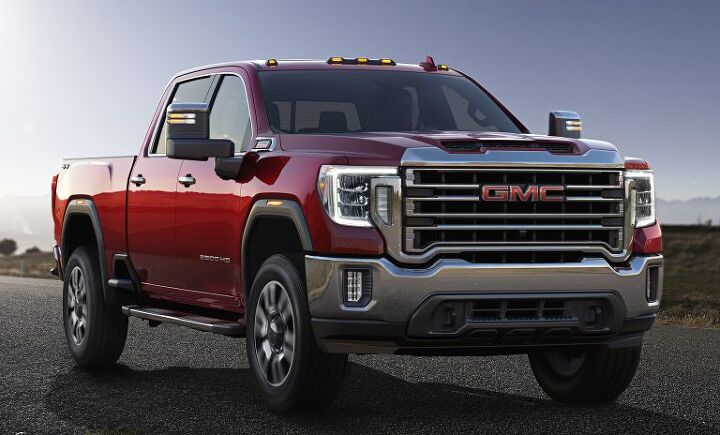
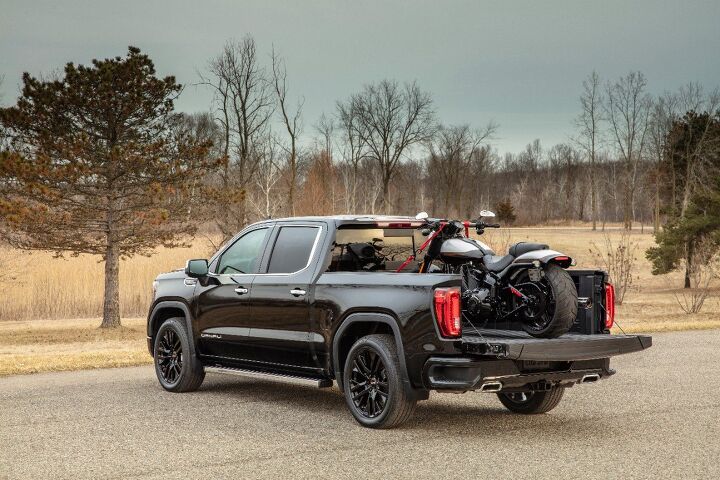



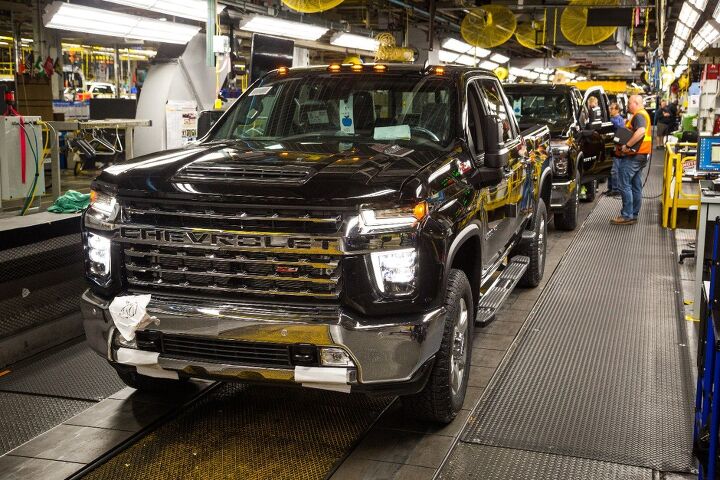















Recent Comments